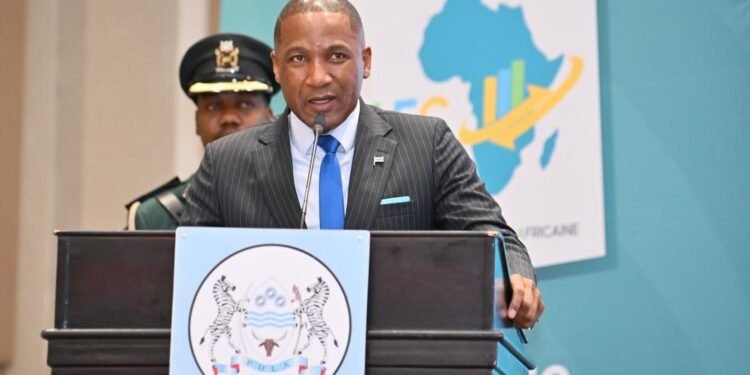Leaders and experts gather to tackle economic challenges and harness opportunities for growth.
GABORONE, Botswana (BG) – The African Continental Free Trade Area (AfCFTA) holds significant prospects for transforming Africa’s economic landscape, President Duma Gideon Boko of Botswana said during his opening remarks at the African Economic Conference (AEC) 2024.
The event, organized by the African Development Bank (AfDB), the Economic Commission for Africa (ECA), and the United Nations Development Programme (UNDP), began in Gaborone, Botswana, on November 23 and will run through November 25.
This year’s conference is themed “Securing Africa’s Economic Future Amidst Rising Uncertainty” and aims to address the continent’s most pressing challenges while charting a path for sustainable development and prosperity.
President Boko highlighted the AfCFTA as a cornerstone for Africa’s economic transformation, stating, “The AfCFTA holds significant prospects for transforming Africa’s economic landscape to foster investment, create jobs, and promote industrialization.”
He called for leveraging the agreement to enhance intra-African trade, diversify economies, and position the continent as a global economic powerhouse.
The AfCFTA is the world’s largest free trade area bringing together the 55 countries of the African Union (AU) and eight (8) Regional Economic Communities (RECs) to create a single market for the continent. The aim is to enable the free flow of goods and services across the continent and boost the trading position of Africa in the global market.
The president underscored the importance of regional cooperation beyond trade, urging African nations to work together on shared infrastructure, resource management, and conflict resolution.
He stressed the urgency of addressing armed conflicts, stating, “Peace and stability in Africa must be anchored on accountable and responsive governance. Without this foundation, sustainable economic development remains elusive.”
The conference comes at a time of significant challenges, including global inflation, supply chain disruptions, and climate change.
However, President Boko noted Africa’s unique opportunities, including its rich natural resources, youthful population, and potential for innovation in agriculture and renewable energy.
“Africa is blessed with abundant renewable energy resources, such as sunlight and wind,” he said, emphasizing the importance of transitioning to sustainable energy systems to address climate change while boosting industrialization and economic growth.
The AEC, established in 2006, serves as a platform for dialogue, research, and knowledge exchange. Delegates will explore key sub-themes, including human development, climate change adaptation, and the digital economy, with a focus on actionable solutions to drive the continent forward.
As the conference unfolds, leaders and experts are expected to engage in discussions that will shape the trajectory of Africa’s future, with the AfCFTA at the center of efforts to secure a resilient and prosperous economic future for the continent.




